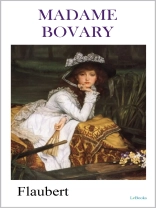Madame Bovary de Gustave Flaubert es una cautivadora novela ambientada en el siglo XIX en Francia. Narra la historia de Emma Bovary, una mujer impulsada por ideales románticos y en busca de realización personal. El estilo meticuloso de Flaubert y su habilidad para retratar los deseos humanos y las consecuencias de perseguir sueños inalcanzables han convertido esta novela en una obra maestra de la literatura. Gustave Flaubert, destacado autor francés del siglo XIX, es reconocido por su realismo y atención al detalle. Su exploración de las complejidades del amor, las expectativas sociales y las limitaciones impuestas a las mujeres sigue siendo una lectura cautivadora y que invita a la reflexión. Sumérgete en el vívido mundo de Madame Bovary y adéntrate en la fascinante narrativa creada por Gustave Flaubert, una obra que hace parte de la famosa coleción ‘1001 libros que hay que leer antes de morir’
Circa l’autore
El estilo meticuloso de Flaubert y su habilidad para retratar los deseos humanos y las consecuencias de perseguir sueños inalcanzables han convertido esta novela en una obra maestra de la literatura. Gustave Flaubert, destacado autor francés del siglo XIX, es reconocido por su realismo y atención al detalle. Su exploración de las complejidades del amor, las expectativas sociales y las limitaciones impuestas a las mujeres sigue siendo una lectura cautivadora y que invita a la reflexión.












